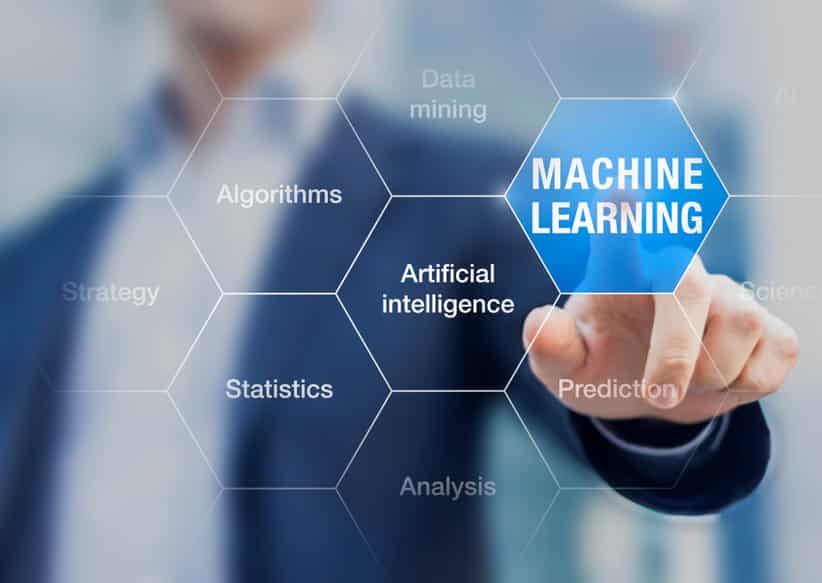By John Salak –
At least tens of millions of individuals worldwide may rely increasingly on artificial intelligence (AI) applications to predict their near-term risk of dementia, cardiac arrest and even death, according to a series of independent research efforts in Britain and the U.S. It’s likely that AI’s ability to help gauge other impending health issues and risks will grow as long as researchers delve into new ways to unleash its predictive powers.
The ability to accurately predict the risk of developing a disease or even dying 12-to-24-months out in itself is not a cure for what potentially ails at-risk individuals. But early and accurate detection gives at-risk patients and their doctors the ability to mitigate health problems through early intervention.
Research on all AI applications has flooded the public domain over the last few years. Just recently, however, Britain’s University of Exeter released a study that noted AI has the ability to predict with more than 90 percent accuracy which people who attend memory clinics will develop dementia within two years. The British study examined data from more the 15,000 patients who attended these types of clinics in the U.S., relying on a form of AI, called machine learning, to make these predictions.
The Exeter team applied a machine learning process that identified hidden patterns in the data to determine those most at risk. The researchers noted that in addition to accurately predicting those that may soon suffer from dementia, the algorithm also helped reduce the number of incorrect dementia diagnoses.
“We’re now able to teach computers to accurately predict who will go on to develop dementia within two years,” explained Professor David Llewellyn, an Alan Turing Fellow at Exeter. “We’re also excited to learn that our machine learning approach was able to identify patients who may have been misdiagnosed. This has the potential to reduce the guesswork in clinical practice and significantly improve the diagnostic pathway, helping families access the support they need as swiftly and as accurately as possible.” The university’s breakthrough is significant, according to Dr. Rosa Sancho, Head of Research at Alzheimer’s Research UK. 
“Artificial intelligence has a huge potential for improving early detection of the diseases that cause dementia and could revolutionize the diagnosis process for people concerned about themselves or a loved one showing symptoms,” she explained. “This technique is a significant improvement over existing alternative approaches and could give doctors a basis for recommending lifestyle changes and identifying people who might benefit from support or in-depth assessments.”
The team’s work to date used machine learning to analyze patient information routinely available in clinics, such as memory and brain function, performance on cognitive tests and specific lifestyle factors. It now plans to investigate whether machine learning can be leveraged to improve dementia diagnosis, treatment and care.
Earlier in 2021, yet another research program touted the ability of machine learning to accurately predict the risk of cardiac arrest using a combination of timing and weather. The study found the risk of cardiac arrests, effectively when the heart stops beating, was highest on Sundays, Mondays, public holidays and when temperatures dropped sharply within or between days. These finds, which were published in the professional journal Heart, could have far-reaching consequences for at-risk individuals since out of hospital cardiac arrest is relatively common although survival rates are not terribly high. The research, which is based on ten years of patient data collected in Kobe, Japan, has limitations since it is geographically limited, and researchers did not have data on the existing conditions for the patients involved.
The report, nonetheless, said their results are an important launch point for improving the prognosis for at-risk individuals. “Our predictive model for daily incidence of this form of cardiac arrest is widely generalizable for the general population in developed countries because this study had a large sample size and used comprehensive meteorological data,” the report stressed. “The methods developed in this study serve as an example of a new model for predictive analytics that could be applied to other clinical outcomes of interest related to life-threatening acute cardiovascular disease.” Dr. David Foster Gaieski, a member of the Sidney Kimmel Medical College at Thomas Jefferson University, agreed.
“Knowing what the weather will most likely be in the coming week can generate ‘cardiovascular emergency warnings’ for people at risk—notifying the elderly and others about upcoming periods of increased danger similar to how weather data is used to notify people of upcoming hazardous road conditions during winter storms,” he explained.
The predictive powers of AI apparently don’t stop at just identifying the risk of cardiac arrest. Researchers from the Geisinger Medical Group, which includes nine hospitals and a research center, report that an AI computer algorithm that relies on echocardiogram videos of the heart can predict mortality within a year. This algorithm even outperformed other clinically used predictors, including pooled cohort equations and the Seattle Heart Failure score.
“We were excited to find that machine learning can leverage unstructured datasets such as medical images and videos to improve on a wide range of clinical prediction models,” said Chris Haggerty, Ph.D., an assistant professor in the Department of Translational Data Science and Informatics at Geisinger.
Geisinger’s findings initially were based on an analysis of 812,278 echocardiogram videos collected from more than 30,000 patients over ten years. A subsequent study that fully applied the algorithm and focused on nearly 50 million images showed a 13 percent improvement in predictive accuracy.
“Our goal is to develop computer algorithms to improve patient care,” explained Alvaro Ulloa Cerna, Ph.D., a senior data scientist at Geisinger. “In this case, we’re excited that our algorithm was able to help cardiologists improve their predictions about patients since decisions about treatment and interventions are based on these types of clinical predictions.”












